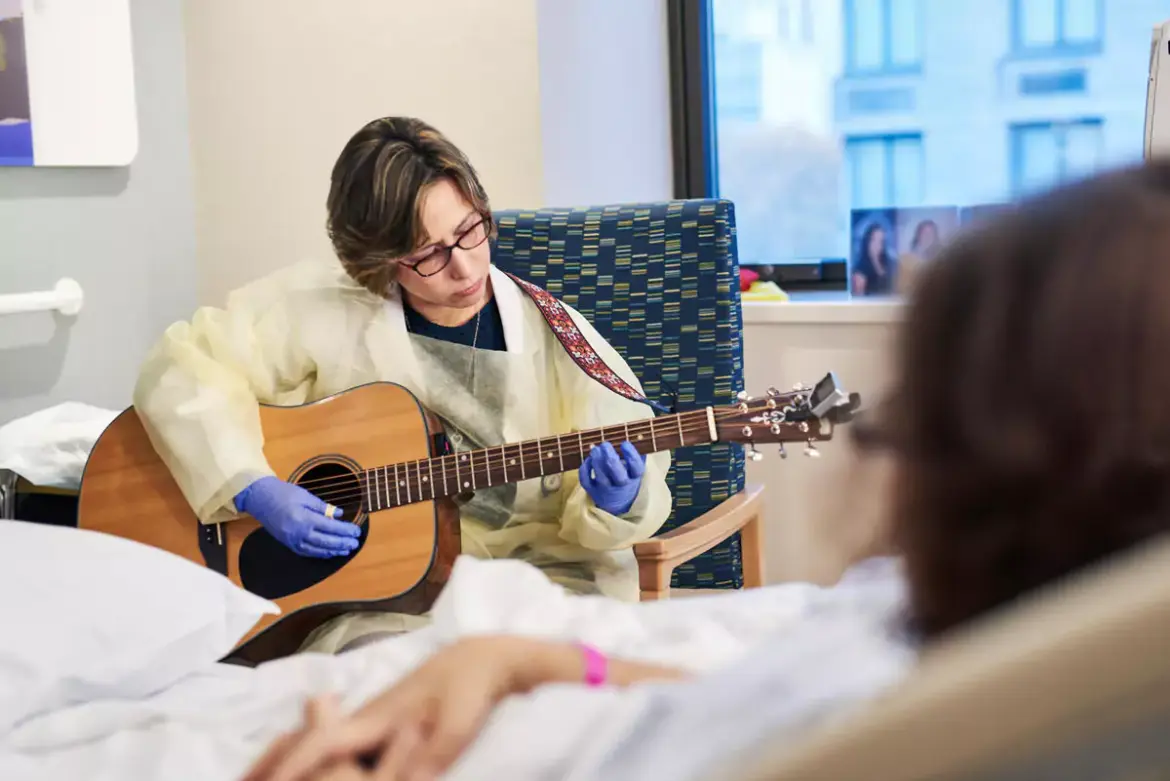Chicago, IL – At the annual meeting of the American Society of Clinical Oncology (ASCO), Memorial Sloan Kettering Cancer Center (MSK) unveiled significant research findings focused on the treatment of lung, gastric, and esophageal cancers, alongside innovative approaches to cancer-related anxiety.
During the conference—one of the most prominent scientific gatherings in oncology—MSK highlighted three targeted therapies showing promise in treating hard-to-manage lung cancers. One therapy addresses small cell lung cancer, while two others target non-small cell lung cancer. These advancements point to a future of more personalized treatment options for patients facing aggressive and complex cancer types.
In the field of gastrointestinal oncology, MSK presented encouraging data from clinical trials suggesting that immunotherapy can significantly reduce the recurrence of gastric and esophageal cancers following surgical treatment.
Music Therapy Shows Lasting Benefits for Anxiety in Cancer Survivors
Addressing the pressing mental health needs of cancer survivors, MSK’s integrative medicine specialists also shared results from a groundbreaking clinical trial comparing music therapy to the traditional gold standard for anxiety treatment—cognitive behavioral therapy (CBT).
The study, which included over 300 participants, was conducted virtually to improve accessibility and eliminate barriers to care. Researchers found that music therapy was equally effective as CBT in reducing anxiety, with benefits persisting for at least four months after the sessions ended.
“Cognitive behavioral therapy has long been the preferred approach for treating anxiety, but it doesn’t work for everyone,” said Kevin Liou, lead author of the study and an integrative medicine expert at MSK. “Some individuals struggle to access it or feel uncomfortable because of stigma around conventional mental health services.”
Liou emphasized that the findings position music therapy as more than just a temporary relief: “This research shows music therapy can offer lasting benefits. As we confront a growing mental health crisis, we need a broader, more innovative toolkit. Music therapy should be considered alongside traditional treatments, particularly for those unable to access standard options.”
Mental Health: A Growing Concern Among Cancer Survivors
With cancer survivorship in the United States now exceeding 18 million people, anxiety remains a persistent issue for one in three survivors. Often lingering for years after treatment, it poses a serious barrier to recovery. The COVID-19 pandemic further exacerbated mental health struggles, making the expansion of accessible and diverse treatment options a public health priority.
MSK’s research underscores the need for comprehensive care that addresses both the physical and psychological dimensions of cancer survivorship, offering renewed hope through science and innovation.

